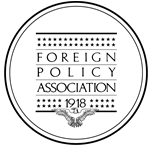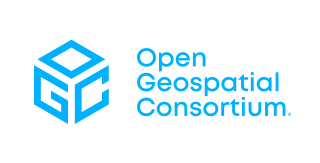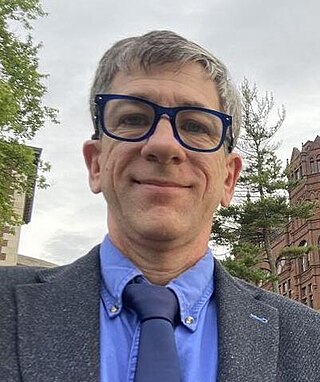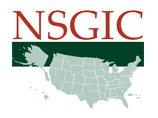
The United Nations Economic and Social Council (ECOSOC) is one of the six principal organs of the United Nations, responsible for coordinating the economic and social fields of the organization, specifically in regards to the fifteen specialized agencies, the eight functional commissions, and the five regional commissions under its jurisdiction.

The United Nations Economic Commission for Europe is one of the five regional commissions under the jurisdiction of the United Nations Economic and Social Council. It was established in order to promote economic cooperation and integration among its member states.

The Foreign Policy Association is a non-profit organization, founded in 1918, dedicated to inspiring the American public to learn more about the world. According to the Foreign Policy Association (FPA), the organization aims to spread global awareness and understanding of US foreign policy and global issues by informing, inspiring, and engaging with the public in community and educational forums. As of 2023, the organization's current President & CEO is Noel V. Lateef, who is also the longest serving President of the Foreign Policy Association.

The Space Generation Advisory Council (SGAC), in support of the United Nations Program on Space Applications, is a non-governmental organization and professional network whose goal is to convey the perspectives of students and young space professionals to the United Nations (UN), space industry, space agencies, and academia.
The Open Source Geospatial Foundation (OSGeo), is a non-profit non-governmental organization whose mission is to support and promote the collaborative development of open geospatial technologies and data. The foundation was formed in February 2006 to provide financial, organizational and legal support to the broader Libre/Free and open-source geospatial community. It also serves as an independent legal entity to which community members can contribute code, funding and other resources.
The National Conference of State Legislatures (NCSL), established in 1975, is a "nonpartisan public officials' association composed of sitting state legislators" from the states, territories and commonwealths of the United States.
Digital Earth is the name given to a concept by former US vice president Al Gore in 1998, describing a virtual representation of the Earth that is georeferenced and connected to the world's digital knowledge archives.

The European Youth Forum is an international non-profit association that serves as an umbrella organisation and advocacy group of the national youth councils and international non-governmental youth organisations in Europe. It works on youth rights in international institutions such as the European Union, the Council of Europe, and the United Nations.
A Spatial Data Infrastructure (SDI), also called geospatial data infrastructure, is a data infrastructure implementing a framework of geographic data, metadata, users and tools that are interactively connected in order to use spatial data in an efficient and flexible way. Another definition is "the technology, policies, standards, human resources, and related activities necessary to acquire, process, distribute, use, maintain, and preserve spatial data".
Founded in 1964, the American Water Resources Association (AWRA) is a multidisciplinary not-for-profit professional association dedicated to the advancement of individuals in water resources management, research, and education. With more than 2,000 members, AWRA is the pre-eminent multidisciplinary U.S. organization in the field. AWRA’s membership includes engineers, educators, foresters, biologists, ecologists, geographers, managers, regulators, hydrologists, hydro-geologists, attorneys, economists, and water policy specialists. AWRA organizes conferences, publishes the peer-reviewed Journal of the American Water Resources Association (J AWRA), the Water Resources IMPACT magazine, and sponsors various member committees, State Sections and Student Chapters.
The Arizona Geographic Information Council (AGIC) was established by executive order as Arizona's primary forum and oversight group for coordination efforts related to geographic information systems (GIS). AGIC identifies standards and implementation strategies to provide a framework for optimizing Arizona's investment in GIS. Through cooperation and partnerships, AGIC facilitates the acquisition, exchange and management of geospatial data and technology to benefit State agencies and the Arizona GIS community. AGIC meets on a regular basis and conducts an Annual GIS Conference to address statewide GIS issues, requirements and solutions.

The Arctic policy of the United States is the foreign policy of the United States in regard to the Arctic region. In addition, the United States' domestic policy toward Alaska is part of its Arctic policy.

The Open Geospatial Consortium (OGC), an international voluntary consensus standards organization for geospatial content and location-based services, sensor web and Internet of Things, GIS data processing and data sharing. It originated in 1994 and involves more than 500 commercial, governmental, nonprofit and research organizations in a consensus process encouraging development and implementation of open standards.
The Urban and Regional Information Systems Association (URISA) is a non-profit association of professionals using geographic information systems (GIS) and other information technologies to solve challenges at all levels of government. URISA promotes the effective and ethical use of spatial information and technology for the understanding and management of urban and regional systems.
Multistakeholder governance is a practice of governance that employs bringing multiple stakeholders together to participate in dialogue, decision making, and implementation of responses to jointly perceived problems. The principle behind such a structure is that if enough input is provided by multiple types of actors involved in a question, the eventual consensual decision gains more legitimacy, and can be more effectively implemented than a traditional state-based response. While the evolution of multistakeholder governance is occurring principally at the international level, public-private partnerships (PPPs) are domestic analogues.
The Western Association of Map Libraries (WAML) is a not-for-profit organization dedicated to the promotion, preservation, and use of maps and geospatial information. Its purpose as stated in its by-laws is:
GeoSUR is a regional initiative led by spatial data producers in Latin America and the Caribbean to implement a regional geospatial network and to help establish the basis of a spatial data infrastructure in the region. GeoSUR supports the development of free access geographic services useful to find, view and analyze spatial information through maps, satellite images, and geographic data.

A subdivision of both the United Nations General Assembly and the United Nations Economic and Social Council, the United Nations High-level Political Forum on Sustainable Development (HLPF) is responsible for the entire organization's policy on sustainable development.
The Clean Energy Ministerial (CEM) is a high-level global forum set up to promote policies, programmes and knowledge transfer to advance clean energy technology and encourage the transition to a global clean energy economy. According to the CEM’s institutional framework, adopted in 2016, the organization orients its actions around the Paris Agreement and the United Nations Sustainable Development Goals.

Joseph Kerski is a geographer with a focus on the use of Geographic Information Systems (GIS) in education.







